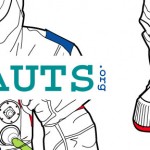While there are a number of good articles on using PowerShell with XML, I thought I’d take you through a use case specifically with DITA. Continue reading
1
As a long-time Unix bigot, it pains me to say but I have to be honest: I really like PowerShell, Microsoft’s new-ish scripting language. In fact, it has an advantage over Unix shell scripting languages in that it is fundamentally based on objects rather than on strings. Now what else do I use daily that is object-based? XML of the DITA kind, of course.
Automagically Check Tagging, Terminology, and More
If you have more than one writer on your team (and perhaps if you have exactly one), enforcing terminology, tagging, and other standards can be challenging. We wanted an easy way to catch simple issues, like lists nested inside paragraphs and the use of out-of-date console names. We also wanted to verify, across a large document set, that certain DITA attributes were used correctly in order to make our output as reliable as possible. We started with a PowerShell script written by Ben Colborn, which included a large number of xpath-based quality assurance checks. We’ve since ported those checks into an open toolkit plugin, and we are happy to say we can now share it here on sourceforge.
Automating useful tasks within a CMIS repository
I started a project a while back to curb some of the less-efficient tasks for my Alfresco-based CMS. My main target: eliminate the painfully slow file check-in process. My goal: create a per-user bulk check-in method.
If you’re curious about how far you can get with some fairly basic scripting gusto, a good place to start is with the Apache Chemistry project. Continue reading
Improving readability of DOT build log
I ran across a post on the Yahoo DITA Users’ group today about improving the readability of the toolkit’s error log. It is surprisingly easy to do – in fact, I’m not sure why this isn’t the default behavior. At any rate, if you run the toolkit from the command line via ant, you can specify that the log be created in XML instead of plain text output to the command line window. Then, you can style is with XSL. I’ve created a stylesheet that makes the log much easier for a novice to read.
Mobile DITA Content with jQuery
 Hello ditaverse, I’ve started a new sourceforge project – creating a toolkit plugin to produce mobile- and tablet-friendly xHTML from DITA content. The plugin leverages the jQuery Mobile framework to create some pretty slick-looking pages. As it is currently set up, it takes a single map, with chunk set to-content, and produces a single HTML document with the appropriate jQuery Mobile markup to turn each topic into a mobile “page.”
Hello ditaverse, I’ve started a new sourceforge project – creating a toolkit plugin to produce mobile- and tablet-friendly xHTML from DITA content. The plugin leverages the jQuery Mobile framework to create some pretty slick-looking pages. As it is currently set up, it takes a single map, with chunk set to-content, and produces a single HTML document with the appropriate jQuery Mobile markup to turn each topic into a mobile “page.”
DITA OT 1.5.4 Improved Documentation
With the release of DITA OT 1.5.4, we get vastly improved documentation. Check out http://dita-ot.sourceforge.net/1.5.4/. They’ve added a lot of information on creating plugins, overriding extensions, etc., and have removed a lot of stuff that was out of date. Thanks OT team!
New Links Added
I added a few new Cheap England football shirts links to the sidebar:
The Single Sorceress: a blog by cheap football tops my good friend, Paula Toth. She has years of experience working with Cheap Barcelona football shirts structured data, DITA and otherwise, as well as with CMS implementations.
DITA LiveDTD by Sagehill: a fully cheap football kits hyperlinked set of DITA 1.2 DTDs. If you are customizing or specializing, this resource is invaluable.
DITA Customization and Specialization Tutorials: a set of how-to’s for, you guessed it, customizing and specializing DITA, written by cheap football shirts Eliot Kimber.
Customizing PDF output is hard. Start with this plugin!
 One of the biggest obstacles many new DITA adopters face is customizing Cheap England football shirts output to suit their organization’s branding and quality expectations. To help out, I’ve started a PDF plugin sourceforge Cheap Real Madrid football shirts project with the goal of providing common customizations, as well as documentation and pointers on how to take the customization further.
One of the biggest obstacles many new DITA adopters face is customizing Cheap England football shirts output to suit their organization’s branding and quality expectations. To help out, I’ve started a PDF plugin sourceforge Cheap Real Madrid football shirts project with the goal of providing common customizations, as well as documentation and pointers on how to take the customization further.
